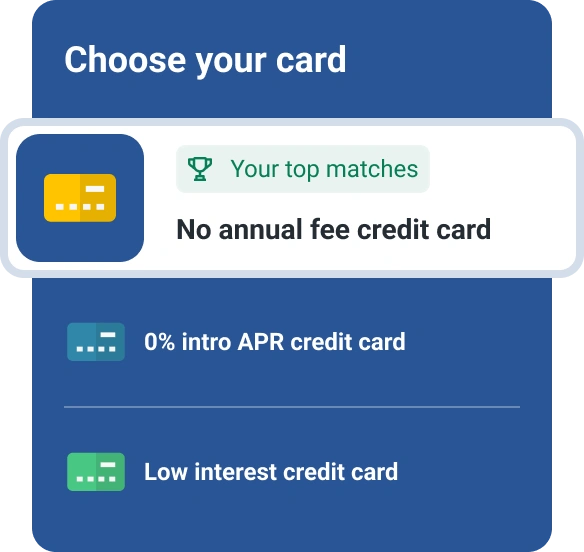Should I Cancel a Credit Card With an Annual Fee?
Quick Answer
Closing a credit card that has an annual fee might be a good idea in certain situations. But before you do, consider whether you’re getting more value from the card than you’re spending on the fee. And look into downgrading to a card without an annual fee instead.

Deciding whether to keep a card with an annual fee isn't always easy. Credit card rewards maximizers know how to squeeze every point or mile out of their cards, and they're often OK with paying annual fees. But if you're clearly not getting a lot of value from the card, or you don't have the time or energy to closely manage it, closing the card might make sense. However, before you do, know how the move could affect your credit and consider downgrading the card to a no-annual-fee card instead.
How a Credit Card Annual Fee Works
Credit card annual fees are most commonly found on premium rewards cards, travel cards and secured cards. Some card issuers waive the fee for the first year to help attract new cardholders, but you'll generally pay the fee when you first open your account and on each anniversary of your account opening.
The fee may be added to your account's balance right away. So, even if you don't use your card for purchases, make sure you pay your bill on time to avoid getting charged a late payment fee as well.
When You Should Keep a Credit Card With an Annual Fee
Paying an annual fee might be worth it if you're earning a lot of rewards with the card, enjoying the cardholder benefits or getting other value from the card.
- You offset the annual fee with rewards. Estimate how much you'll earn in rewards during a year—you can use your account history to see how much you've already earned. Compare that to how much you could earn with a rewards card that doesn't have an annual fee. If the difference is more than the annual fee, then paying the fee might be worth it.
- You use the added cardholder benefits. Some credit cards offer various cardholder benefits, such as airport lounge access, certificates for free hotel rooms, primary rental car coverage, free checked bags and statement credits. Consider how often you use these perks and whether they're worth the cost of the card's annual fee.
- You're using an intro 0% annual percentage rate (APR) offer. If you opened a credit card with an annual fee to use an intro purchase or balance transfer 0% APR offer, you may need to keep the card open while you're paying off the balance.
When You Should Cancel a Credit Card With an Annual Fee
If you got a lot of value from the card before but aren't getting a lot right now, closing the card might be a better option.
- You don't want to spend mental energy on rewards. Although cards with annual fees might offer bigger and better benefits, they can also require more mental energy to manage. A flat-rate cash back card without an annual fee could be a simpler alternative.
- You don't earn a lot of rewards. Cards with an annual fee may offer high rewards rates, but it's sometimes only a little higher than no-annual-fee cards.
- You rarely use the added cardholder benefits. Some credit card benefits sound better than they are, especially when there are restrictions or you wind up spending extra money just to take advantage of a "benefit." Or, if your lifestyle or travel habits have changed, the card's benefits might not align with your needs anymore.
- The benefits or reward program changed. Credit card benefits and rewards programs occasionally change, including hotel and airline loyalty programs.
If you're considering closing your card, perhaps because you rarely use it, you could call the card issuer and ask if there are any retention offers first. Sometimes you can get the fee waived, a statement credit that offsets the fee, additional rewards or another type of offer if you pay the fee and keep your card open.
Consider Downgrading Your Credit Card Instead of Canceling It
You might also want to consider downgrading rather than closing a credit card. A downgrade is a product change to a card that has fewer benefits and might have fewer fees. It can be a good option because:
- There's no impact on your credit score. Because you're switching cards without closing your account, there generally won't be any changes that could affect your credit score (more on this below).
- You won't lose rewards. If you're earning rewards in the card issuer's rewards program, you might be able to downgrade to a different card in the program to keep your rewards. If you can't downgrade, redeem or transfer your rewards before closing the account to avoid losing them.
- But you might not keep APR offers. A product change won't necessarily be a good option if you're using a promotional APR. The new card might have the same standard APR, but you won't necessarily get to continue the promotional APR offers.
Product changes aren't always available and, even when they are, you might have to choose from a limited number of cards. But if you think this might be a good alternative to closing your card, call your card issuer to discuss the options.
How Canceling a Credit Card Affects Your Credit
Closing a credit card can immediately affect your credit scores by changing your credit utilization ratio and credit mix, and it may impact the average age of your accounts down the road.
- Higher credit utilization: When you close a credit card, your available revolving credit will decrease and your utilization ratio may increase—which could hurt your credit scores. If you have other credit cards, you may be able to offset the impact by paying down their balances or using them for fewer purchases.
- Fewer revolving accounts: Having a mix of open revolving and installment accounts can help your credit scores. If this was your only credit card and you don't have other revolving credit accounts, closing the card might reduce your credit mix and hurt your scores.
- Will affect the average age of accounts in the future: Your credit card account can stay on your credit report for up to 10 years and continue helping your credit scores during this time. When the account eventually falls off your report, the average age of accounts in your credit report may decrease, which could hurt your scores.
Keeping credit cards open is generally better for your credit scores, which is why downgrading or asking for a fee waiver might be a good first step. But saving money on annual fees may be a priority, and the impact to your credit could be minimal if you have other credit cards with low balances or plan on opening a new credit card soon.
Compare New Credit Card Offers
Check your credit report and credit score for free to see where you're at, and monitor your credit score if you decide to close your card. If downgrading your card makes sense, your credit score won't affect your options. However, if you decide to close your card and open a new one, you can use Experian's card comparison tool to find and compare credit card offers based on your unique credit profile.
Don’t apply blindly
Apply for credit cards confidently with personalized offers based on your credit profile. Get started with your FICO® Score for free.
See your offersAbout the author
Louis DeNicola is freelance personal finance and credit writer who works with Fortune 500 financial services firms, FinTech startups, and non-profits to teach people about money and credit. His clients include BlueVine, Discover, LendingTree, Money Management International, U.S News and Wirecutter.
Read more from Louis

